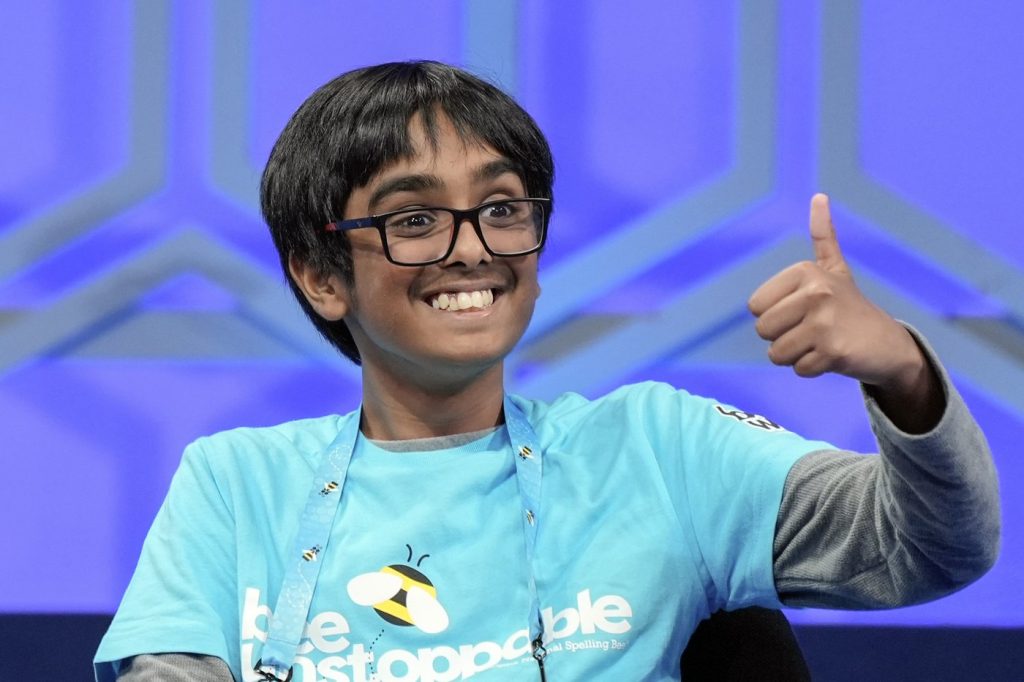The Scripps National Spelling Bee, the most prestigious competition for young spellers in the English language, is set to kick off its 100th anniversary this year. The event has a rich history, with its inaugural bee taking place in 1925, organized by the Louisville Courier-Journal. From its humble beginnings, where newspapers invited local champions to compete in Washington, the bee has evolved into a major event held annually just outside the nation's capital in Oxon Hill, Maryland. This year's competition will start on May 27 and conclude on May 29.
This will mark the 97th edition of the bee; it was put on hold during World War II from 1943 to 1945 and also in 2020 due to the COVID-19 pandemic. The champion crowned this year will be recognized as the 110th winner, considering the multiple ties that have occurred over the years, including an eight-way tie in 2019.
Fans eagerly anticipating the event can tune in to watch the Scripps National Spelling Bee broadcast and streamed via several channels owned by Scripps, a Cincinnati-based media company. The preliminary rounds will be available on May 27, streaming on Bounce XL, Grit Xtra, Laff More, and spellingbee.com from 8 a.m. to 4:40 p.m. EDT. On May 28, the quarterfinals will air from 8 a.m. to 12:45 p.m., followed by the semifinals streaming from 2:30 to 6:30 p.m. The semifinals will also be broadcast on ION with a tape-delay from 8-10 p.m. The finals will culminate in an ION broadcast from 8-10 p.m. on May 29.
This year's bee will feature 243 spellers from all 50 states as well as the District of Columbia, with competitors across U.S. territories including Puerto Rico, the U.S. Virgin Islands, and the Northern Mariana Islands. International participants hail from countries such as Canada, the Bahamas, Germany, Ghana, Kuwait, and Nigeria. Notably, Faizan Zaki, last year’s runner-up, is returning to the competition after narrowly losing to Bruhat Soma in a lightning-round tiebreaker called a “spell-off.” At 13 years old and in the seventh grade from Allen, Texas, Faizan will look to capture the title this time around, having already proven his mettle by winning several online competitions.
Aishwarya Kallakuri, a 14-year-old eighth-grader from Concord, North Carolina, and the winner of the SpellPundit National Spelling Bee, as well as Avinav Prem Anand, a 14-year-old eighth-grader from Columbus, Ohio, who finished second to Faizan in the Words of Wisdom bee, are other strong contenders. Additionally, Vedanth Raju, a 12-year-old seventh-grader from Aurora, Colorado, and the younger brother of 2022 runner-up Vikram Raju, adds to the competitive field.
To qualify for the Scripps National Spelling Bee, competitors must go through regional sponsors' spelling bees. Participants should not have advanced beyond the eighth grade nor be older than 15 years. The preliminary rounds consist of a spelling and vocabulary quiz, followed by a written test for those advancing. Approximately the top 100 performers from this test will move on to the quarterfinals, where they face elimination through additional oral spelling and vocabulary questions.
In the finals, only about a dozen of the best spellers will be left standing. Scripps reserves the right to employ a lightning-round tiebreaker known as a “spell-off” if only two spellers remain, but they have relaxed the rules regarding the timing for such tiebreakers. The competition’s champion is announced based on one final spell-off if necessary.
The rewards for the champion of the Scripps National Spelling Bee are substantial. The winner receives a custom trophy along with over $50,000 in cash and prizes. Specific prize amounts include $52,500 for first place, $25,000 for second, $15,000 for third, $10,000 for fourth, $5,000 for fifth, and $2,500 for sixth place. Additionally, all other finalists receive $2,000.
The Scripps National Spelling Bee continues to inspire and gather significant attention, highlighting the dedication and talent of its young spellers. The event not only showcases impressive spelling skills but also reflects the diverse backgrounds and cultures of its participants, further contributing to its legacy in American education and entertainment.











